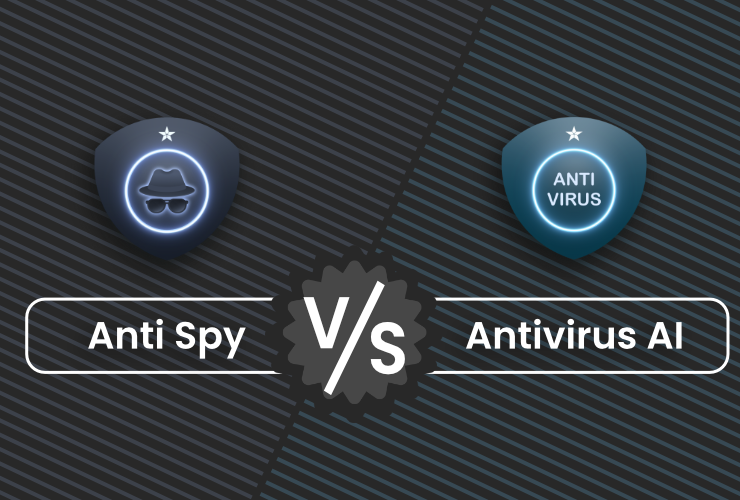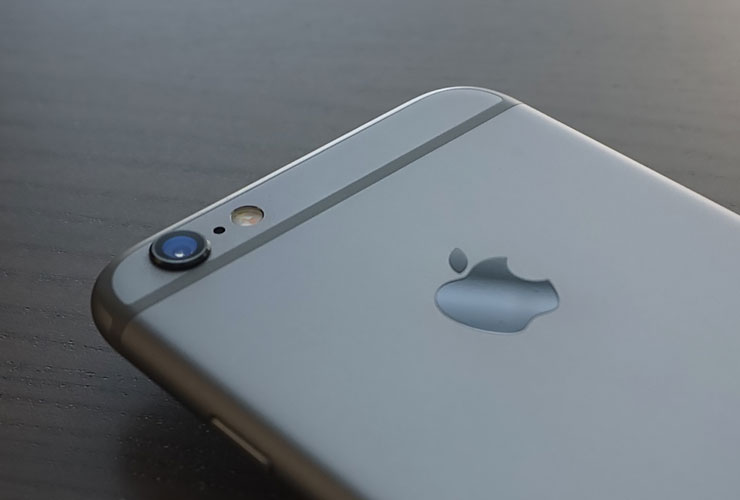A Guide: Understanding and Effectively Using a VPN

A virtual private network (VPN) is an important component in protecting your privacy on the internet. But what exactly is a VPN, and in which cases should you really use it? And why is additional protection like an antivirus app worthwhile? In this article, you’ll find answers to these questions and many other practical tips to help you browse the web more securely and freely.
What is a VPN and Why Is It Important?
A VPN (“Virtual Private Network”) creates an encrypted tunnel between your device and the VPN provider’s server. As a result, your IP address is concealed externally, helping to protect your privacy. That’s because your IP can reveal your approximate location and potentially hint at your identity.
What a VPN Is Really Good For
Some VPN providers promise “100% security and anonymity,” but it’s not quite that simple. A VPN is particularly useful in two key scenarios:
- Bypassing Restrictions and Censorship
If you’re connected to a network that blocks certain websites or services (e.g., at school, in a company, or in countries with internet censorship), a VPN can often help you circumvent those blocks.
You can also bypass geographical restrictions — for example, when streaming — by connecting to a VPN server in another country. However, note that more and more providers are actively blocking VPN connections. - Connecting to Internal Networks
If you want to securely connect to your company’s intranet while working from home or traveling, a VPN can establish a secure link.
A personal VPN that you operate on your own server or router at home also lets you access your home network remotely.
Whether a VPN is worthwhile depends on your specific requirements. Be sure to also check any existing regulations or possible VPN bans, which can vary and change at any time depending on the country.
What a VPN Does Not Provide
No Complete Assurance in Public Wi-Fi
You often hear: “Always use a VPN in public Wi-Fi.” But since much web traffic is already encrypted via HTTPS, a VPN is not mandatory for everyone. If you want to be absolutely sure and don’t fully trust a public network, using a VPN can at least reduce the risk of someone locally intercepting your data. But keep in mind:
HTTPS encrypts only the content of data transmissions, not the metadata (e.g., the domain you’re visiting and when).
Your VPN provider can see your data traffic, which otherwise your ISP could view if you weren’t using a VPN.
- No Complete Anonymity
A VPN is not a replacement for tools like Tor, which is specifically designed to maximize anonymity. Tracking methods such as cookies, fingerprinting, or GPS location aren’t automatically blocked by a VPN. Additionally, VPN providers can be legally obligated to share information if authorities request it.
If you need extensive protection of your identity, you’ll need to use additional tools and maintain mindful online habits (e.g., Tor, separate accounts, avoiding tracked services). - No Protection Against Government or Law Enforcement Access
In many cases, your ISP logs certain data, and a VPN provider can do the same. Even though some services claim “no logs,” there have repeatedly been cases in the past where VPN providers, either voluntarily or because of legal requirements, had to share data with government agencies. Moreover, data such as locally stored browser histories or search logs (e.g., in your browser or Google account) remain vulnerable. Therefore, a VPN won’t automatically shield you from police or governmental investigations.
Examples of Well-Known Incidents:
- HideMyAss (HMA)
LulzSec Case (2011/2012): In the course of investigations against the hacker collective LulzSec, HideMyAss handed over data to British authorities, enabling at least one member to be identified. It turned out HMA had been logging IP addresses and timestamps, even though the service suggested a certain level of anonymity at the time. - PureVPN
FBI Investigation (2017): PureVPN helped in solving a cyberstalking case. Although its policies stated that it did not keep usage logs, records handed over helped identify the suspect. This showed that at least some connection or metadata had been logged. - IPVanish
DHS Case (2016): IPVanish had publicly claimed it did not keep logs, yet it emerged that the company handed over connection data to the US Department of Homeland Security (DHS). As a result, a suspect in a criminal investigation could be identified. - EarthVPN
Turkey Case (2013): There are media reports indicating that in at least one instance, Turkish authorities obtained data from EarthVPN that led to identifying a suspect. This illustrates that, despite “no logs” claims, legal and practical conditions in some countries can require VPN providers to hand over data.
Well-Known VPN Services and Their Approach to Data Storage
The VPN market is diverse and constantly evolving. Many services advertise a “no logs” policy, but how strictly they truly enforce it can vary. Below is a brief overview of some of the most popular VPN providers and what is known about their data storage. Keep in mind that policies and corporate structures can change — so it’s wise to regularly review official privacy policies and independent test reports.
- NordVPN
Headquarters: Panama
No-Logs Promise: NordVPN states that it does not store any activity or connection logs.
Audits & Transparency: Multiple external audits by PwC (PricewaterhouseCoopers) have confirmed that NordVPN does not keep logs.
Notable Points: Panama does not have mandatory data retention laws, which can be a plus for privacy-minded users. However, NordVPN was the victim of a server hack in 2018 (revealed in 2019). While unrelated to logging, this incident shows that even major providers face security risks.
- ProtonVPN
Headquarters: Switzerland
No-Logs Promise: ProtonVPN emphasizes a strict no-logs policy. Switzerland has relatively strict data protection laws and is not bound by EU data retention directives.
Open Source & Audits: The service makes its clients open source and conducts regular security audits. Transparency reports detail how ProtonVPN handles government requests.
Notable Points: Proton is best known for ProtonMail and is strongly positioned in privacy and data protection.
- ExpressVPN
Headquarters: British Virgin Islands (BVI)
No-Logs Promise: ExpressVPN states that it does not record activity or connection logs.
Audits & Transparency: Several independent security audits have been conducted and published.
Notable Points: While BVI is considered privacy-friendly, it also has close ties to the UK. Some users find this concerning, while others appreciate that there are no formal data retention obligations.
- Private Internet Access (PIA)
Headquarters: Originally in the US, now owned by Kape Technologies (which also owns other VPN brands).
No-Logs Promise: PIA has been deemed “no logs” in US court cases, where the company could not provide any usable data.
Controversy: Kape Technologies (formerly Crossrider) previously engaged in adware distribution, leading some customers to be skeptical about the acquisition. However, there have been no public cases since then where PIA shared logs.
- Mullvad
Headquarters: Sweden
No-Logs Promise: Mullvad places great emphasis on anonymity by assigning you a random account number instead of having an email-based account. It does not store connection data.
Audits & Transparency: Its client is open source, and independent security audits have taken place.
Notable Points: Mullvad is often regarded as one of the most transparent and privacy-oriented VPN services in the community. However, Sweden falls under EU regulations and might be compelled to share data in certain investigations. Since Mullvad collects minimal data, any disclosure would presumably be minimal.
- Surfshark
Headquarters: Initially in the British Virgin Islands, now part of Nord Security (parent company of NordVPN).
No-Logs Promise: Surfshark claims not to store traffic, IP addresses, or browser activity.
Audits & Transparency: It publishes regular penetration tests and offers a bug bounty program.
Notable Points: The merger with Nord Security may provide additional security resources but also raises concerns about potential market consolidation.
- CyberGhost
Headquarters: Romania
No-Logs Promise: CyberGhost asserts that it does not keep activity logs and releases annual transparency reports.
Ownership: Like PIA, CyberGhost is owned by Kape Technologies, which initially triggered skepticism among some users.
Notable Points: Romania is not bound by the EU Data Retention Directive (as per a ruling by the Romanian Constitutional Court), which can be beneficial in terms of privacy.
Why a VPN Is Only Part of the Picture
If you want to stay safe online, you shouldn’t rely on a VPN alone. Other essential measures for more security include:
- Strong Passwords: Use a unique, lengthy password for each service. A password manager can help you with that.
- Two-Factor Authentication (2FA): Enable 2FA wherever it’s offered to add an extra layer of security to your account.
- Use Only HTTPS: Activate “HTTPS-only” mode in your browser so that no unencrypted pages are loaded.
- Device Encryption: This safeguards your data even if your device is lost or stolen.
- Regular Updates: Keep your operating system and apps up to date to patch known security vulnerabilities.
- Encrypted DNS: Use DNS-over-HTTPS or DNS-over-TLS so your DNS requests aren’t transmitted in plaintext.
- Tracker Blockers: Browser extensions or apps that hinder unwanted web tracking.
What to Consider When Choosing a VPN
- Reputation and Transparency
Look for independent security audits.
Carefully examine privacy policies: do they store or sell user data?
Check the company’s background and the founders’ reputation. - Location and Legal Framework
A provider’s headquarters determines which laws apply, such as data retention or cooperation with authorities. - Business Model
Free VPNs often finance themselves through ads or by selling user data.
Subscription, one-time purchase, or freemium models are more transparent if they clearly explain what you’re paying for. - Encryption Standards and Protocols
Make sure they use modern protocols such as OpenVPN or WireGuard.
Older protocols like PPTP are considered insecure and should be avoided. - Data Minimization
VPN providers claiming “no logs” should be able to explain technically how this is implemented.
Check media reports to confirm an operator hasn’t been caught making misleading claims.
Protectstar recommends: IVPN and Mullvad
As a company specializing in data protection and security, we particularly recommend IVPN and Mullvad. Both providers stand out for their strict privacy policies and high security standards. Nonetheless, it’s important to choose a VPN that meets your individual needs.
IVPN
- No user logs: IVPN follows a strict no-logs policy, meaning it does not store any activity or connection metadata.
- Regular transparency reports: Independent security experts audit IVPN on a regular basis, and the results are published.
- Modern protocols: IVPN relies on WireGuard and OpenVPN—two of the most secure and fastest protocols available.
- Flexible payment options: If you want to remain as anonymous as possible, you can pay for IVPN with cryptocurrencies or gift cards.
- Location Gibraltar: Gibraltar currently has no mandatory data retention laws for VPN services, offering an additional layer of privacy.
Mullvad
- Strict no-logs policy: Mullvad also refrains from storing any activity or connection data.
- Anonymous account creation: You don’t need to provide personal information to sign up—Mullvad assigns you a randomly generated account number.
- Regular audits: Mullvad undergoes independent security audits and publishes the results.
- Various payment methods: In addition to credit cards and PayPal, Mullvad accepts cryptocurrencies and even cash by mail to protect your anonymity.
- Location Sweden: Mullvad is headquartered in Sweden, a country with stringent data protection laws that offer extra security.
Both IVPN and Mullvad are excellent choices if you highly value privacy, data minimization, and strong security standards. However, make sure to thoroughly research each provider’s features, pricing, and server locations so you can make an informed decision that fits your personal requirements.
Antivirus AI for Android: Another Layer of Protection
In addition to using a VPN, you should comprehensively shield your device from malware. Antivirus AI offers exactly that kind of robust protection. It’s a next-generation antivirus solution based on artificial intelligence, is multiple-certified, and recently won the BIG Innovation Award 2025:
Intelligent Threat Detection
Antivirus AI continuously analyzes the behavior of your apps and processes, enabling it to detect malware and zero-day exploits even before any official signatures exist.Defending Against Advanced Persistent Threats (APT)
APTs can be especially insidious as they often target specific companies or users while remaining largely undetected. Antivirus AI recognizes unusual activities early on, preventing extensive damage.Multiple Certifications
Various independent testing bodies have recognized the reliability of Antivirus AI, so you can trust its effectiveness.Resource Friendly
Despite its powerful AI processes, Antivirus AI won’t burden your system excessively, and power consumption remains low.Perfect Integration with VPN Solutions
While a VPN encrypts your connection, Antivirus AI monitors your device internally. This gives you a multi-layered defense against both eavesdropping on Wi-Fi networks and unwanted software on your device.
By combining a reliable VPN (e.g., IVPN) with Antivirus AI for Android, you achieve a particularly high level of digital security: you protect your online privacy and ensure that viruses, spyware apps, and APT attacks have no room to thrive on your smartphone.
Conclusion
A VPN can significantly enhance your online security by masking your IP and shielding your data from prying eyes — whether you’re on public Wi-Fi, facing censorship in certain networks, or simply value privacy. However, a VPN alone isn’t a catch-all solution to every threat. For comprehensive protection, additional measures like strong passwords, two-factor authentication, and tracker blocking are indispensable.
Stay informed about the legal framework of your chosen VPN provider, and check its protocols, business model, and reputation. By also securing your Android device with Antivirus AI, you further boost your security level.
Further Information:
Antivirus AI Android: https://www.protectstar.com/de/products/antivirus-ai
IVPN: https://www.ivpn.net
MULLVAD VPN: https://mullvad.net


